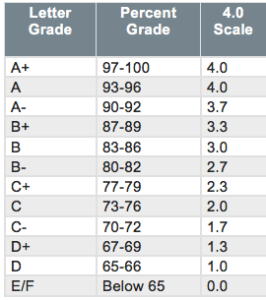5 GPA Tips

Achieving a high GPA is a hallmark of academic success, reflecting a student’s dedication, hard work, and ability to manage their time effectively. For students aiming to excel in their academic pursuits, understanding the strategies that contribute to a high GPA is crucial. Here are five GPA tips designed to help students navigate the challenges of academic life and achieve their goals:
1. Set Clear Academic Goals
Setting clear, achievable goals is the foundation of academic success. Before the start of each semester, take time to reflect on what you hope to achieve. Consider not just your GPA aspirations but also which courses you need to take, any extracurricular activities you wish to participate in, and how you plan to balance your academic and personal life. Writing down your goals can make them feel more tangible and serve as a constant reminder of what you’re working towards. Break down larger goals into smaller, manageable tasks to help maintain focus and motivation throughout the semester.
2. Develop a Study Routine
Consistency is key when it comes to studying. Developing a routine that works for you and sticking to it can significantly improve your academic performance. This doesn’t mean you need to study for hours on end every day, but rather find a balance that allows you to stay on top of your coursework without burning out. Consider implementing a schedule that allocates specific times for studying, attending classes, participating in extracurricular activities, and relaxation. Utilize tools like planners, calendars, or apps to organize your time and set reminders for upcoming assignments and exams.
3. Engage Actively with Course Material
Merely attending classes is not enough; active engagement with the course material is essential for understanding and retaining information. This involves participating in class discussions, asking questions when you’re unsure about a concept, and seeking help from your instructors or teaching assistants when needed. Outside of class, engage with the material by summarizing notes in your own words, creating concept maps, or making flashcards to help reinforce your understanding. Additionally, forming study groups with classmates can provide an opportunity to learn from one another, discuss challenging topics, and stay motivated.
4. Prioritize Time Management
Effective time management is critical for achieving academic success. It’s about making the most of the time available to you, ensuring that you allocate sufficient time for studying, completing assignments, and preparing for exams, while also leaving space for relaxation and leisure activities. The Pomodoro Technique, which involves working in focused 25-minute increments, followed by a 5-minute break, can be particularly helpful in maintaining productivity. Additionally, learn to say “no” to non-essential commitments that could derail your study schedule, and avoid procrastination by tackling challenging tasks first.
5. Seek Help When Needed
Recognizing when you need help and being proactive about seeking it is a sign of strength, not weakness. Whether you’re struggling with a particular subject, managing your time, or dealing with personal issues that affect your studies, there are resources available to support you. Most educational institutions offer tutoring services, academic advisors, and counseling centers that can provide guidance and support. Don’t hesitate to reach out to your instructors for additional help outside of class or to discuss any challenges you’re facing. Remember, the goal of education is to learn and grow, and seeking help is an integral part of that process.
Conclusion
Achieving a high GPA requires a combination of academic ability, hard work, and smart strategies. By setting clear goals, developing a study routine, engaging actively with course material, prioritizing time management, and seeking help when needed, students can position themselves for success. Remember, academic performance is just one aspect of the educational experience. Balancing academic pursuits with personal well-being and extracurricular activities can lead to a more fulfilling and well-rounded college experience.
How can I stay motivated throughout the semester?
+Staying motivated involves setting achievable goals, celebrating small victories, and finding a study routine that works for you. Engaging in activities you enjoy and spending time with supportive peers can also help maintain motivation and reduce stress.
What role does time management play in achieving a high GPA?
+Effective time management is crucial for achieving a high GPA. It involves prioritizing tasks, avoiding procrastination, and making the most of the time available for studying and completing assignments. Tools like calendars, planners, and time management apps can be helpful in staying organized.
How important is seeking help when struggling academically?
+Seeking help is vital when struggling academically. It demonstrates a proactive approach to learning and can significantly improve understanding and grades. Resources such as tutoring services, academic advisors, and counseling centers are available to provide support and guidance.
By embracing these strategies and maintaining a dedicated approach to academic excellence, students can not only achieve a high GPA but also cultivate skills and habits that will serve them well beyond their academic careers.
